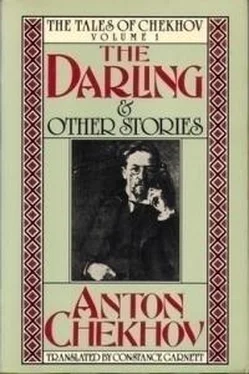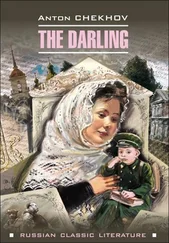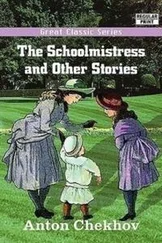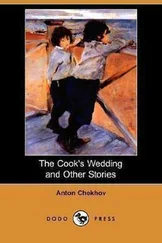Антон Чехов - The Darling
Здесь есть возможность читать онлайн «Антон Чехов - The Darling» — ознакомительный отрывок электронной книги совершенно бесплатно, а после прочтения отрывка купить полную версию. В некоторых случаях можно слушать аудио, скачать через торрент в формате fb2 и присутствует краткое содержание. Год выпуска: 2014, Издательство: epubBooks Classics, Жанр: Классическая проза, на английском языке. Описание произведения, (предисловие) а так же отзывы посетителей доступны на портале библиотеки ЛибКат.
- Название:The Darling
- Автор:
- Издательство:epubBooks Classics
- Жанр:
- Год:2014
- ISBN:нет данных
- Рейтинг книги:5 / 5. Голосов: 1
-
Избранное:Добавить в избранное
- Отзывы:
-
Ваша оценка:
- 100
- 1
- 2
- 3
- 4
- 5
The Darling: краткое содержание, описание и аннотация
Предлагаем к чтению аннотацию, описание, краткое содержание или предисловие (зависит от того, что написал сам автор книги «The Darling»). Если вы не нашли необходимую информацию о книге — напишите в комментариях, мы постараемся отыскать её.
The Darling — читать онлайн ознакомительный отрывок
Ниже представлен текст книги, разбитый по страницам. Система сохранения места последней прочитанной страницы, позволяет с удобством читать онлайн бесплатно книгу «The Darling», без необходимости каждый раз заново искать на чём Вы остановились. Поставьте закладку, и сможете в любой момент перейти на страницу, на которой закончили чтение.
Интервал:
Закладка:
"University men are not suitable for our business."
"That's not true," cried Laptev. "It's a lie!"
"Excuse me, it seems to me you spit into the well from which you drink yourself," said Fyodor, and he got up. "Our business is hateful to you, yet you make use of the income from it."
"Aha! We've spoken our minds," said Laptev, and he laughed, looking angrily at his brother. "Yes, if I didn't belong to your distinguished family—if I had an ounce of will and courage, I should long ago have flung away that income, and have gone to work for my living. But in your warehouse you've destroyed all character in me from a child! I'm your product."
Fyodor looked at the clock and began hurriedly saying good–bye. He kissed Yulia's hand and went out, but instead of going into the hall, walked into the drawing–room, then into the bedroom.
"I've forgotten how the rooms go," he said in extreme confusion. "It's a strange house. Isn't it a strange house!"
He seemed utterly overcome as he put on his coat, and there was a look of pain on his face. Laptev felt no more anger; he was frightened, and at the same time felt sorry for Fyodor, and the warm, true love for his brother, which seemed to have died down in his heart during those three years, awoke, and he felt an intense desire to express that love.
"Come to dinner with us to–morrow, Fyodor," he said, and stroked him on the shoulder. "Will you come?"
"Yes, yes; but give me some water."
Laptev ran himself to the dining–room to take the first thing he could get from the sideboard. This was a tall beer–jug. He poured water into it and brought it to his brother. Fyodor began drinking, but bit a piece out of the jug; they heard a crunch, and then sobs. The water ran over his fur coat and his jacket, and Laptev, who had never seen men cry, stood in confusion and dismay, not knowing what to do. He looked on helplessly while Yulia and the servant took off Fyodor's coat and helped him back again into the room, and went with him, feeling guilty.
Yulia made Fyodor lie down on the sofa and knelt beside him.
"It's nothing," she said, trying to comfort him. "It's your nerves…."
"I'm so miserable, my dear!" he said. "I am so unhappy, unhappy …but all the time I've been hiding it, I've been hiding it!"
He put his arm round her neck and whispered in her ear:
"Every night I see my sister Nina. She comes and sits in the chair near my bed…."
When, an hour later, he put on his fur coat in the hall, he was smiling again and ashamed to face the servant. Laptev went with him to Pyatnitsky Street.
"Come and have dinner with us to–morrow," he said on the way, holding him by the arm, "and at Easter we'll go abroad together. You absolutely must have a change, or you'll be getting quite morbid."
When he got home Laptev found his wife in a state of great nervous agitation. The scene with Fyodor had upset her, and she could not recover her composure. She wasn't crying but kept tossing on the bed, clutching with cold fingers at the quilt, at the pillows, at her husband's hands. Her eyes looked big and frightened.
"Don't go away from me, don't go away," she said to her husband. "Tell me, Alyosha, why have I left off saying my prayers? What has become of my faith? Oh, why did you talk of religion before me? You've shaken my faith, you and your friends. I never pray now."
He put compresses on her forehead, chafed her hands, gave her tea to drink, while she huddled up to him in terror….
Towards morning she was worn out and fell asleep, while Laptev sat beside her and held her hand. So that he could get no sleep. The whole day afterwards he felt shattered and dull, and wandered listlessly about the rooms without a thought in his head.
XVI
The doctor said that Fyodor's mind was affected. Laptev did not know what to do in his father's house, while the dark warehouse in which neither his father nor Fyodor ever appeared now seemed to him like a sepulchre. When his wife told him that he absolutely must go every day to the warehouse and also to his father's, he either said nothing, or began talking irritably of his childhood, saying that it was beyond his power to forgive his father for his past, that the warehouse and the house in Pyatnitsky Street were hateful to him, and so on.
One Sunday morning Yulia went herself to Pyatnitsky Street. She found old Fyodor Stepanovitch in the same big drawing–room in which the service had been held on her first arrival. Wearing slippers, and without a cravat, he was sitting motionless in his arm–chair, blinking with his sightless eyes.
"It's I—your daughter–in–law," she said, going up to him. "I've come to see how you are."
He began breathing heavily with excitement.
Touched by his affliction and his loneliness, she kissed his hand; and he passed his hand over her face and head, and having satisfied himself that it was she, made the sign of the cross over her.
"Thank you, thank you," he said. "You know I've lost my eyes and can see nothing…. I can dimly see the window and the fire, but people and things I cannot see at all. Yes, I'm going blind, and Fyodor has fallen ill, and without the master's eye things are in a bad way now. If there is any irregularity there's no one to look into it; and folks soon get spoiled. And why is it Fyodor has fallen ill? Did he catch cold? Here I have never ailed in my life and never taken medicine. I never saw anything of doctors."
And, as he always did, the old man began boasting. Meanwhile the servants hurriedly laid the table and brought in lunch and bottles of wine.
Ten bottles were put on the table; one of them was in the shape of the Eiffel Tower. There was a whole dish of hot pies smelling of jam, rice, and fish.
"I beg my dear guest to have lunch," said the old man.
She took him by the arm, led him to the table, and poured him out a glass of vodka.
"I will come to you again to–morrow," she said, "and I'll bring your grandchildren, Sasha and Lida. They will be sorry for you, and fondle you."
"There's no need. Don't bring them. They are illegitimate."
"Why are they illegitimate? Why, their father and mother were married."
"Without my permission. I do not bless them, and I don't want to know them. Let them be."
"You speak strangely, Fyodor Stepanovitch," said Yulia, with a sigh.
"It is written in the Gospel: children must fear and honour their parents."
"Nothing of the sort. The Gospel tells us that we must forgive even our enemies."
"One can't forgive in our business. If you were to forgive every one, you would come to ruin in three years."
"But to forgive, to say a kind, friendly word to any one, even a sinner, is something far above business, far above wealth."
Yulia longed to soften the old man, to awaken a feeling of compassion in him, to move him to repentance; but he only listened condescendingly to all she said, as a grown–up person listens to a child.
"Fyodor Stepanovitch," said Yulia resolutely, "you are an old man, and God soon will call you to Himself. He won't ask you how you managed your business, and whether you were successful in it, but whether you were gracious to people; or whether you were harsh to those who were weaker than you, such as your servants, your clerks."
"I was always the benefactor of those that served me; they ought to remember me in their prayers forever," said the old man, with conviction, but touched by Yulia's tone of sincerity, and anxious to give her pleasure, he said: "Very well; bring my grandchildren to–morrow. I will tell them to buy me some little presents for them."
The old man was slovenly in his dress, and there was cigar ash on his breast and on his knees; apparently no one cleaned his boots, or brushed his clothes. The rice in the pies was half cooked, the tablecloth smelt of soap, the servants tramped noisily about the room. And the old man and the whole house had a neglected look, and Yulia, who felt this, was ashamed of herself and of her husband.
Читать дальшеИнтервал:
Закладка:
Похожие книги на «The Darling»
Представляем Вашему вниманию похожие книги на «The Darling» списком для выбора. Мы отобрали схожую по названию и смыслу литературу в надежде предоставить читателям больше вариантов отыскать новые, интересные, ещё непрочитанные произведения.
Обсуждение, отзывы о книге «The Darling» и просто собственные мнения читателей. Оставьте ваши комментарии, напишите, что Вы думаете о произведении, его смысле или главных героях. Укажите что конкретно понравилось, а что нет, и почему Вы так считаете.












